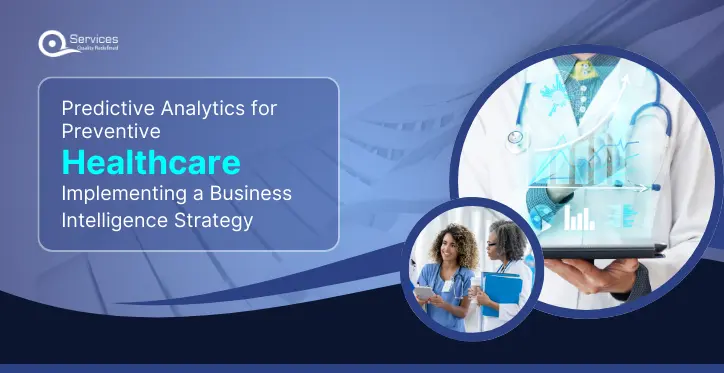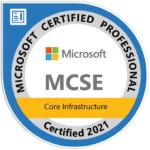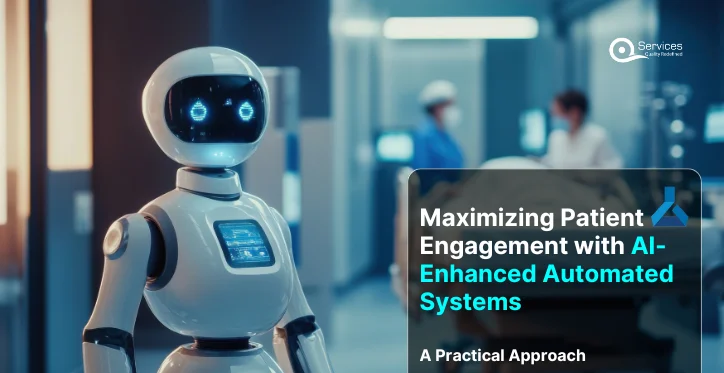
Rewards
.





CANADA
55 Village Center Place, Suite 307 Bldg 4287,
Mississauga ON L4Z 1V9, Canada
Certified Members:
.



Home » Solving Skill Gaps in Automation: How Microsoft Solution Partners Transform Oil and Gas Operations

The oil and gas industry is going through big changes with automation technologies like AI, IoT, and advanced data tools. But there’s a problem—many workers don’t have the right skills to use these tools effectively. This automation skill gap is a major hurdle for companies trying to stay competitive.
Automation tools are evolving faster than workers can be trained. Many employees haven’t had the chance to learn how to use advanced systems like cloud platforms or predictive analytics. Without the right training, even the best technologies can’t deliver results.
In a world where technology evolves faster than ever, success depends on how quickly we can adapt and acquire new skills.
For the oil and gas sector, having skilled workers is critical to improving processes, cutting costs, and staying safe.
That’s where Microsoft Solution Partners step in. These partners provide oil and gas business solutions to tackle the skill issues in automation. They provide customized training and access to advanced tools that help workers develop their skills.
How exactly do these efforts make a difference? And what more is needed to bridge the skills gap once and for all?
Don’t worry! In this blog, we’ll break down how Microsoft Solution Partners are helping enhance automation skills in the oil and gas industry and developing a future-ready workforce.
The oil and gas industry has embraced technologies like IoT, AI, and machine learning, but these advancements come with a catch—workers often don’t have the skills to use them effectively.
Automation is changing the way companies operate, but not everyone is ready for it. IT in oil and gas industry tools like predictive maintenance and real-time analytics require technical know-how, which many employees lack.
For example, IoT enables real-time monitoring of pipelines and equipment, while AI systems predict maintenance needs. But without proper training, employees can’t maximize the benefits of these tools, leading to delays and inefficiencies.
Filling the automation skill gaps in oil and gas is now more important than ever.
Skill shortages can disrupt operations in many ways:
Lower Productivity: Employees spend more time troubleshooting automation tools instead of focusing on critical tasks.
More Downtime: Equipment failures take longer to resolve without skilled technicians.
Rising Costs: Companies must bring in external experts to compensate for internal gaps.
Did you know that by 2030, the industry could lose up to 20% of its productivity due to skill gaps?
As Franklin wisely said, “An investment in knowledge pays the best interest.”
Are your teams equipped to meet the demands of automation?
Why Is the Skill Gap Growing?
The automation skill gaps in oil and gas are growing for several reasons:
Training Shortages: Traditional programs don’t teach the latest automation technologies.
Fear of Change: Workers may resist learning new tools, sticking to what they know.
Retirement Wave: Experienced employees are leaving the workforce, creating a knowledge vacuum.
Disconnected Teams: IT and operations don’t always work together effectively, which widens the gap.
If these issues aren’t addressed, modern digital oil and gas solutions will be harder to implement.
What the Data Shows
63% of oil and gas companies cite skill shortages as a challenge to automation.
The industry risks losing billions annually due to untrained workforces.
How can companies afford to ignore these numbers?
The success of automation depends on the workforce. By bridging skill gaps, companies can unlock the true potential of IT in oil and gas industry tools and position themselves for long-term success.
Automation has transformed oil and gas industry, but many workers lack the skills to use new tools effectively. This is where Microsoft Solution Partners play a key role, offering targeted training and advanced tools to help close the skill gap.
Who Are Microsoft Solution Partners?
These partners are experts in applying Microsoft energy tools and technology solutions to solve business problems. In the oil and gas sector, they focus on:
1.Running training programs for automation skills to help workers adapt to new systems.
2.Introducing effective IT solutions for oil and gas, such as IoT platforms.
3.Simplifying learning with tools like Azure Data Manager for Energy.
How Training Programs Build Skills
A well-trained workforce is equally essential for companies to embrace automation technology. Microsoft Solution Partners deliver practical training, including:
4.Tailored Lessons: Employees learn skills that directly relate to their jobs.
5.Real-Life Practice: Workers train using tools like IoT devices or automated maintenance systems.
6.Ongoing Support: Regular updates help employees keep up with changing technology.
Example:
One oil company saw a 30% increase in productivity after its workers completed a training program for automation skills led by a Microsoft Solution Partner.
Technology-Powered Learning
Modern learning tools make it easy for employees to gain confidence with automation:
7.Azure Data Manager for Energy: Simplifies managing and analyzing large data sets.
8.AI Simulators: Let workers practice automation tasks without real-world risks.
9.Microsoft Energy Data Services: Provides easy-to-use software for learning complex tasks.
Why Addressing Skill Gaps is Important?
By addressing skill gaps in Oil and Gas industry results in:
10.Higher Efficiency: Trained employees complete their tasks with more efficiency and accuracy.
11.Encouraged Innovation: Staff with advanced skills are more open to creative ideas.
12.Improved Team Morale: Workers feel valued and confident when they receive training.
With the help of Microsoft Solution Partners, businesses can empower their workforce through targeted training programs for automation skills, advanced tools like Azure Data Manager for Energy, and ongoing support.
Get free Consultation and let us know your project idea to turn into an amazing digital product.
As automation becomes more significant in the oil and gas industry, ensuring workers have the right skills is a key challenge. To bridge that skill gap, Microsoft technology solutions are stepping in providing tools and resources that allow workers to stay ahead. Here’s how Microsoft is making a difference.
Microsoft Azure is changing the way skills are developed in the oil and gas industry. With its cloud-based tools, workers can access hands-on training with automation technologies like smart monitoring and predictive maintenance.
By using Azure, businesses are giving their teams the chance to work with these advanced systems, helping them develop the skills they need to stay productive and satisfied in their jobs. Impact of Microsoft Azure on automation skill development in oil and gas can be seen in how quickly employees adapt to new automation systems, which boosts both their abilities and confidence.
Learning is more effective when people work together. Microsoft Teams and Power BI are making this possible for workers.
With Teams, employees can join live training sessions, ask questions, and share ideas in real-time, making learning more engaging. Power BI helps workers understand automation data, so they can make better decisions and improve their skills.
Microsoft solution partners provide tailored IT solutions for oil and gas industry, helping companies make their processes more efficient and automate tasks that would otherwise be done manually.
By using oil and gas IT services that are specifically designed for their needs, companies can make sure their workers have the right skills to use automation tools successfully.
The oil and gas sector heading towards greater automation, and Microsoft oil and gas technology solutions are helping workers get the skills they need to keep up. From Azure-based tools to collaborative platforms and custom IT services, Microsoft is giving businesses the resources to make sure their teams are ready for the future.
A keyway to tackle the skills gap in automation is by offering certification programs that confirm employees’ abilities. Microsoft Solution Partners provide certifications that help oil and gas workers get familiar with the automation tools they’ll use in their jobs.
This directly supports improving workforce skills for automation in the oil and gas sector with Microsoft, enabling workers to handle new technology and automation processes effectively.
Sometimes, the best way to learn is to actually do the work. Microsoft Solution Partners offer on-the-job training where workers can use new automation tools in real-world situations. This hands-on training helps employees apply what they’ve learned directly to their roles in the oil and gas sector. Many oil companies that used this type of training have seen fewer technical problems and better maintenance, showing how helpful it can be in improving workforce skills for automation in the oil and gas sector with Microsoft.
Technology is always changing, and workers need to keep learning. Microsoft Solution Partners offer ongoing support and opportunities to learn more as the technology evolves. Employees have access to online courses, webinars, and workshops to stay up-to-date. This helps them learn how to use the latest digital oil and gas solutions and improve their work with new automation tools.
Microsoft is helping the oil and gas industry to overcome the automation challenges with using new technologies. By providing the right tools and support, Microsoft Solution Partners make it easier for companies to adapt, improving efficiency and addressing skills gaps in automation.
Microsoft offers a range of IT solutions for oil and gas companies to improve their automation, making monitoring, controlling, and managing processes much easier.
Working alongside experts, Microsoft ensures oil and gas businesses have the proper systems in place to start automating tasks and training employees to use these new technologies effectively.
Microsoft uses Azure services to help businesses use resources more wisely. With the help of real-time data, companies can make smart and effective decisions about where to allocate resources.
For example, Microsoft energy data services help companies track their energy use.
It also offers training programs to help workers learn how to use automation tools like AI and IoT. These programs are designed to fill the gaps in automation skills within workforce.
By training employees on how to use new technologies, Microsoft makes sure they are ready for the changes automation brings.
Before: Shell is one of the biggest names in oil and gas sector, struggled with downtime and inefficiencies because their staff wasn’t trained to manage their automation systems properly.
Solution: They partnered with a Microsoft Solution Partner to launch a training program focused on Microsoft’s AI and machine learning tools which helped its employees to get efficient at managing automation.
Result: After the training, Shell had fewer breakdowns and better operations, which led to a 20% increase in productivity.
Before: BP was facing setbacks because they didn’t have enough trained employees to manage their automation systems, resulting in delays and extra expenses.
Solution: To improve that BP partnered with a Microsoft Solution Partner and implemented cloud-based solutions that helped their staff learn automation skills through training.
Result: BP successfully adopted the new automation technology, speeding up projects by 30%. The skilled workforce helped lower costs and improved the company’s productivity.

Microsoft Solution Partners are the core solutions of solving automation and ai skills gap challenges within oil and gas industry. They offer tailored training and support, empowering employees with the expertise needed to manage automation systems effectively. As technology continues to evolve, these partnerships ensure that the workforce is always equipped with the advanced skills, leading to increased productivity and reduced operational downtime.

This tool is changing the way of healthcare’s working. Predictive analytics helps spot patterns in patient data, while Business Intelligence (BI) tools turn those insights into clear, useful plans for action.

The oil and gas industry is navigating a new era of technological transformation. Moreover, the integration of automation in the oil and gas industry has become indispensable to tackle the complexity of operations, especially when managing large volume of data streams.

The term patient engagement is highly valuable for healthcare professionals. They know how important it is to get to the core of the patient’s problem and provide treatments to ensure proper recovery.
Microsoft Solution Partners are companies that collaborate with Microsoft to provide specialized solutions and services, leveraging Microsoft’s technology to address industry-specific challenges.
They provide comprehensive training programs, hands-on workshops, and continuous support to upskill the workforce in the latest automation technologies.
Programs include AI-enabled recruiting, learning, and training initiatives, as well as specialized courses on cloud computing, data analytics, and automation tools.
Programs include AI-enabled recruiting, learning, and training initiatives, as well as specialized courses on cloud computing, data analytics, and automation tools.
AI-enabled recruiting helps identify and attract candidates with the right skills, ensuring that the workforce is equipped to handle advanced automation technologies.
Benefits include improved data management, enhanced collaboration, reduced operational costs, and increased productivity through automation.
They provide tools and training that enhance remote collaboration, knowledge sharing, and real-time decision-making for dispersed teams.
They implement AI-powered monitoring and tracking tools, as well as PPE identification systems, to enhance worker safety and compliance.
Examples include Shell’s digital transformation and BP’s enhanced operational efficiency through the integration of Microsoft’s automation technologies.
They implement automation solutions that streamline processes, optimize resource utilization, and improve overall productivity.
Challenges include skill shortages, data management, integration of new technologies, and ensuring cybersecurity.
Schedule a Customized Consultation. Shape Your Azure Roadmap with Expert Guidance and Strategies Tailored to Your Business Needs.
.





55 Village Center Place, Suite 307 Bldg 4287,
Mississauga ON L4Z 1V9, Canada
.




Founder and CEO

Chief Sales Officer

🎉 Thank you for your feedback! We appreciate it. 🙌